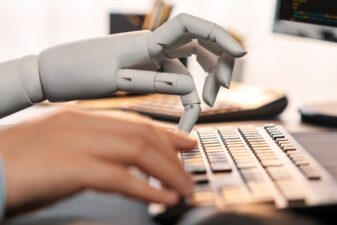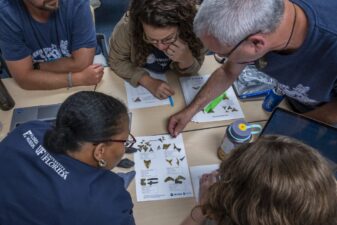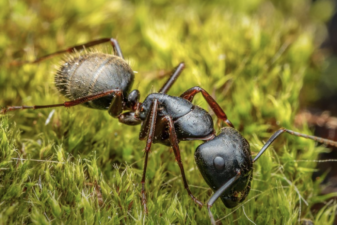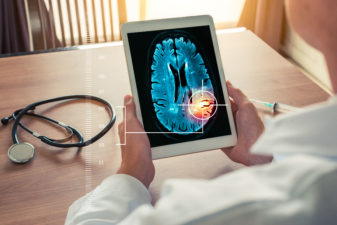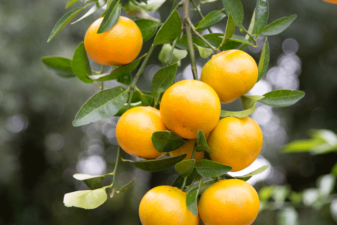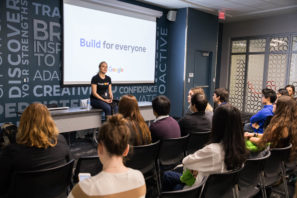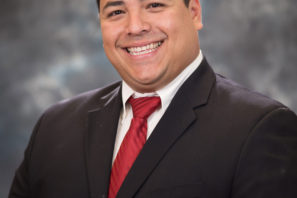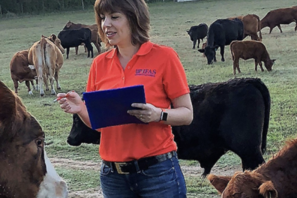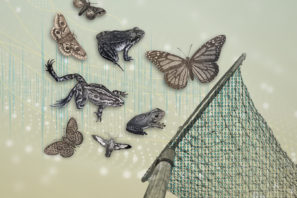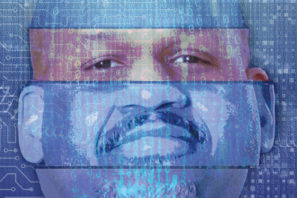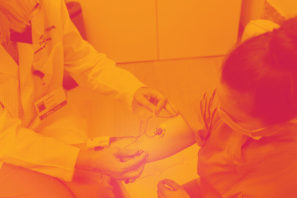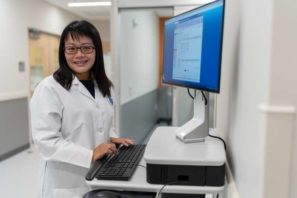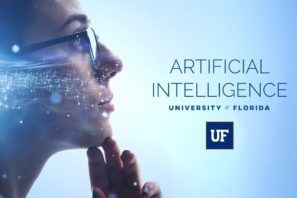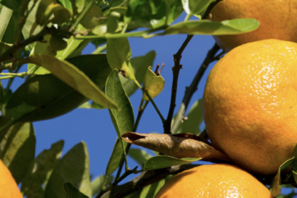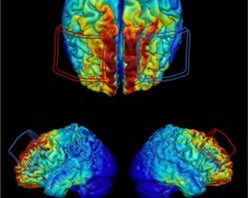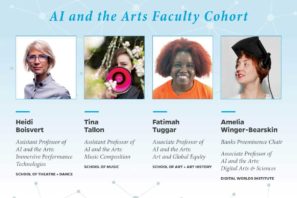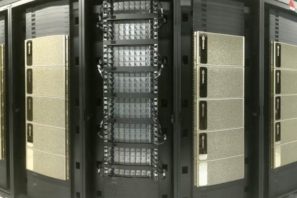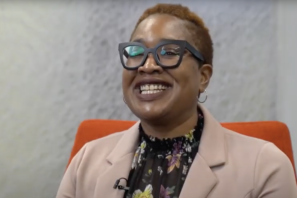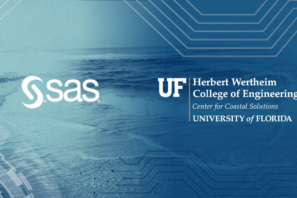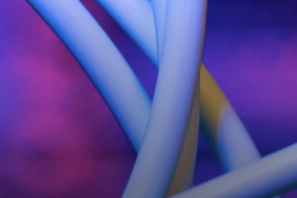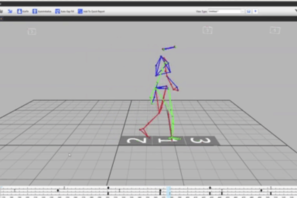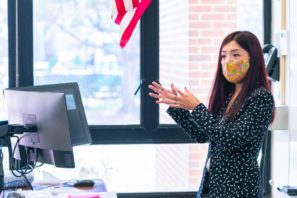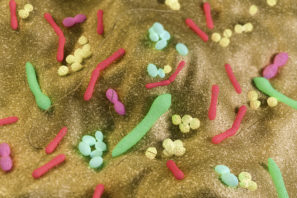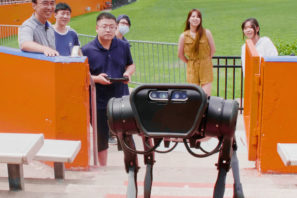The University of Florida Board of Trustees today approved investing $24 million...
UF Artificial Intelligence Research
News from the AI Initiative
The patient arrived with a bladder stone, grimacing in pain and moping...
The University of Florida has selected 20 research projects in artificial intelligence...
Stories written by the latest version of ChatGPT were nearly as good...
Sharks, on their own, are fascinating enough for Florida students in kindergarten...
Alina Zare, one of the University of Florida’s leading artificial intelligence researchers,...
E.O. Wilson once referred to invertebrates as “the little things that run...
High-impact research is in full swing on the University of Florida’s powerful...
As news broke that Florida’s citrus industry ended this year’s growing season...
Career experts at the University of Florida Career Connections Center are partnering with companies to identify how they’re using artificial intelligence, or AI, to ensure students have the skills they need to land a job of their choice after they graduate.
Diego Alvarado believes it’s vital that society understands the role artificial intelligence plays in everything we do.
“Everybody is calling it the new electricity,” said Alvarado, an instructional assistant professor at the Herbert Wertheim College of Engineering at the University of Florida. “It’s under the hood of almost everything. We need to be able to understand it.”
For a century, researchers have tracked genetic traits to find out which cattle produce more and better milk and meat. Now, two University of Florida scientists will use artificial intelligence to analyze millions of bits of genetic data to try to keep cattle cooler and thus, more productive.
Artificial intelligence and computer science researchers say getting machines to do the right thing has turned out to be relatively easy. We program Roombas to vacuum our homes, but don’t expect them to brew our coffee. We program robotic arms to sort parts in factories, but not to decide which colors to paint cars. We program doorbells to tell us who is at the door, but not to let them in. Most of our machines do one thing and do it well, usually in error-free fashion. They get the task right.
The frontiers remaining in the natural world today are not in the...
When you can’t trust your own eyes and ears to detect deepfakes, who can you trust? Perhaps, a machine. University of Florida researcher Damon Woodard is using artificial intelligence methods to develop algorithms that can detect deepfakes — images, text, video and audio that purports to be real but isn’t. These algorithms, Woodard says, are better at detecting deepfakes than humans.
Azra Bihorac says one of the most important collaborations for doctors and...
Not so long ago, a scientist might say she could never have too much data. Even today, in a world drowning in data, it is better to be data-rich than data-poor.
University of Florida researchers are developing a new artificial intelligence tool that will help clinicians identify high-risk patients for opioid use disorder and overdose.
On a hot, muggy morning in July 2020, University of Florida President Kent Fuchs announced an astonishing $70 million public-private partnership between UF and NVIDIA, thus making artificial intelligence (AI) the centerpiece of a major, long-term initiative combining world-class research infrastructure, cutting-edge analysis and a revolutionary approach to curriculum.
University of Florida researchers are using artificial intelligence to help citrus growers better forecast their seasonal production. So far, they’ve found in a preliminary study that their technology predicts yields with 98% accuracy.
University of Florida researchers studying the use of a noninvasive brain stimulation treatment paired with cognitive training have found the therapy holds promise as an effective, drug-free approach for someday warding off Alzheimer’s disease and other dementias.
After an international search process, the College of the Arts welcomes Heidi Boisvert, Tina Tallon, Fatimah Tuggar, and Amelia Winger-Bearskin to professorships in AI and the Arts this fall. The cohort represents a variety of artistic and creative disciplines, with each member appointed to a different school or institute within the college.
The University of Florida’s HiPerGator AI supercomputer has been named the one of the most powerful worldwide, according to rankings just released by TOP500, the most referenced global ranking of high-performance computing systems.
Jasmine McNealy, University of Florida College of Journalism and Communications Media Production, Management, and Technology Associate Professor and Associate Director of the Marion B. Brechner First Amendment Project, is featured in a video about creating responsible AI.
The University of Florida’s Center for Coastal Solutions (CCS) and SAS Institute...
When we talk about artificial intelligence, we often focus its ability to learn, make connections and solve problems all on its own.
This summer, five graduate students in the University of Florida Department of Applied Physiology and Kinesiology (APK), join 10 graduate students in biomedical engineering, neuroscience and clinical psychology to learn about the applications and fundamentals of artificial intelligence (AI), specifically around machine learning.
Building upon her background in corporate communication research, Public Relations Associate Professor Rita Men went into high gear during the pandemic to study effective communications from CEOs as well as chatbots used for social listening.
To solve the elusive medical mystery of why many adults have both high blood pressure and depression, University of Florida Health researchers took a long, in-depth look at one suspected culprit: gut bacteria.
A University of Florida research team is working on a robot dog that has the ability to enter an enclosed space, scan it, and provide humans with a visual of what’s inside, an application that could lessen dangerous situations for first responders.




